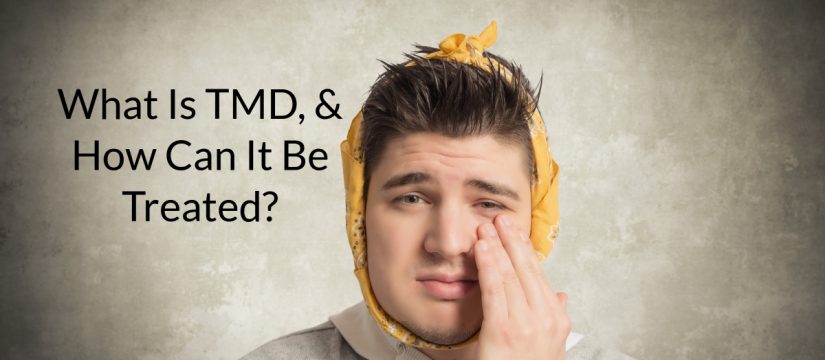
You may have heard of TMD or TMJ, but aren’t quite sure exactly what it is. You know it means jaw pain, stiffness, and possibly even a decreased ability to eat or talk. But what exactly is TMJ, and how can it be treated?
What Is TMJ/TMD?
Temporomandibular joint disorder, also known as TMJ or TMD, is a disorder of the temporomandibular joint. You have two temporomandibular joints, one on each side of your face.
When the temporomandibular joints (TMJ) are out of alignment or don’t move the way they should, it can cause pain, inflammation, and stiffness in the muscles and ligaments surrounding your jaw, neck, and head. This is called temporomandibular joint disorder, or TMD. So, the joint itself is the TMJ, but the disorder of the joint is TMD.
An estimated 15% of the adult population, ages 20 to 40, suffers from TMD, and it affects more women than men.
What Are Some Symptoms of TMD?
Because TMD can impact the bones, muscles, and ligaments surrounding the TMJ, those who suffer from TMD can experience a variety of problems. These include:
- Jaw pain
- Ear pain
- Difficulty chewing
- Pain in the face or neck
- Stiff jaw muscles
- Changes in how the jaw fits together
- Clicking or popping when opening and closing your mouth
- Headaches
- Shoulder pain
- Neck pain
What Causes TMD?
There are many possible causes for TMD, the most common being that the piece of cartilage in the joint of your jaw slips out of place. Other potential causes for TMD include:
- An injury or dislocated jaw
- Teeth or jaws that are misaligned
- Grinding your teeth
- Arthritis, which can cause the cartilage in the joint to break down
How Is TMD Diagnosed?
TMD can be diagnosed after a thorough exam and possible X-rays. Your dentist will look for signs of inflammation or irritation in your jaw, listen for clicking or grinding noises when you open and close your mouth, and test your jaw mobility.
How Is TMD Treated?
Treating TMD often requires a combination of treating the symptoms and dealing with any issues that cause extra pain or stress on your jaw, such as grinding your teeth.
Some common treatments for TMD include:
- Over-the-counter anti-inflammatories
- Hot or cold compresses
- Changing your diet to include softer foods
- Doing exercises to stretch and strengthen your jaw
- Eliminate gum- and nail-chewing
If your TMD is related to or includes teeth grinding, your dentist may recommend a nighttime bite guard or other oral fix to keep you from grinding your teeth and realign your jaw. Decreasing stress by meditating and relaxing also can help alleviate your TMD-related pain, as lower stress makes you less likely to grit and grind your teeth.
Skilled TMJ Treatment in Rockville, MD
If you suspect you have TMD or problems with your TMJ, your first step is to get a diagnosis from a dentist. The dental experts at Rockville Dental Arts have years of experience diagnosing and treating TMJ disorders. Schedule your first appointment today!
Call our Office at 301-424-2030 Today!

